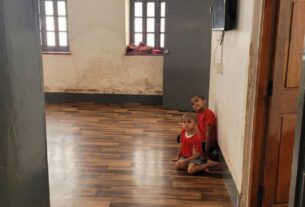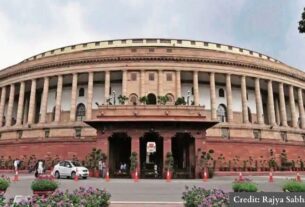The ongoing Karnataka-Maharashtra border dispute sees tightening of police security at the borders of the two states.
The Marathi speaking community of Karnataka are not ready to merge with Maharashtra, yet, “My mother tongue is Marathi but I am loyal to Karnataka,” said chairperson of Karnataka Maratha Communities Development Corporation Ltd (KMCDC), Dr M G Muley. He explains that despite knowing and speaking in Marathi, he will be loyal to Karnataka in the dispute.
“We want things to be the way they are,” said Shivaji Ghorpade. He is a local citizen who has his village and factory in Maharashtra, Nipponi. He travels through Belagavi and has completed his education and spent his life in Karnataka.
“We are on alert to make sure nothing happens,” said Duty Officer of Bidar, Chakradhakar Jyoti. Another officer at Belagavi Commissioner Office said they are on the alert as well.
The areas of Bidar, Vijayapur, Belagavi of Karnataka are on alert as the tensions among the states escalate.
“All Marathi speaking people are not pro-Maharashtra,” said KMCDC’s Dr. Muley. He added that they will be safer if they stay in Karnataka. “Marathi’s needs to wait for the Supreme Court verdict as they are the ones who had filed the petition in 2004,” he said. He is also a member of Maharashtra Mandal of Bengaluru. He further said generalising that all Marathi’s are pro-Maharashtra movement is wrong.
The dispute of Karnataka and Maharashtra started with to the State Reorganisation Act of 1956 by the parliament. The act said that Mumbai (then Bombay) was going to be “reconstituted so as to include the existing Bombay State minus the Abu Road taluk of the Banaskantha district and the Kannada-speaking districts of Dharwar, Bijapur, North Kanara and Belgaum (Belagavi) (excluding the Chandgad taluk).”
The Mahajan commission submitted its report in 1966 saying that Belagavi should continue to be a part of Karanataka.
“Supreme Court does not have the jurisdiction to decide the border. It is a parliamentary decision.” said Arpita Bharadwaj, advocate of the Delhi High Court. She said that the Supreme Court will waive off the matter as they don’t have the power to handle border disputes.
Pooja, a professor of Political Science said, “States are always in conflict over their powers through it is very clearly stated in Article 1 that India is a union of states. I believe that it is worthless to fight over issues based on local politics, which hinders the development of a country.”



